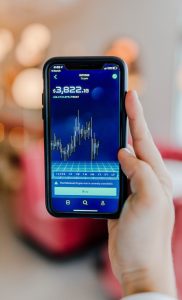Forex Trading 101: How to Choose the Right Broker for You
Choosing the right broker is one of the most important decisions any forex trader will make. A good broker can provide you with the tools and support you need to succeed in the forex market, while a bad broker can make your trading experience a nightmare. In this article, we will discuss the key factors you should consider when choosing a forex broker.
Regulation and Security
The first and foremost factor to consider when choosing a forex broker is regulation and security. It is crucial to ensure that the broker you choose is regulated by a reputable financial authority. Regulation provides a level of protection for traders, as it ensures that the broker operates according to certain ethical and financial standards.
Regulated brokers are required to keep client funds in segregated accounts, separate from their own operational funds. This means that even if the broker goes bankrupt, your funds will be protected and not used to cover the broker’s debts.
Some of the most respected regulatory bodies for forex brokers include the Financial Conduct Authority (FCA) in the UK, the National Futures Association (NFA) in the United States, and the Australian Securities and Investments Commission (ASIC) in Australia.
Trading Platform
The trading platform is the software that allows you to execute trades and monitor the forex market. It is essential to choose a broker that offers a user-friendly and reliable trading platform. A good trading platform should have advanced charting tools, real-time market data, and a variety of order types.
Most brokers offer the popular MetaTrader 4 (MT4) or MetaTrader 5 (MT5) platforms, which are known for their stability and extensive features. These platforms are widely used by traders around the world and offer a range of technical analysis tools, customizable indicators, and expert advisors (automated trading systems).
Some brokers also offer their own proprietary trading platforms, which may have unique features or a more user-friendly interface. It is important to test the trading platform before opening an account to ensure that it meets your needs and preferences.
Spreads and Commissions
Another crucial factor to consider when choosing a forex broker is the cost of trading. Brokers earn money through spreads and commissions, so it is important to compare these costs among different brokers.
The spread is the difference between the bid and ask price of a currency pair. It is essentially the cost of trading and is measured in pips. Lower spreads are generally better for traders, as they reduce the cost of entering and exiting trades.
Commissions are another cost to consider, especially for traders who engage in high-volume trading. Some brokers charge a fixed commission per trade, while others include the commission in the spread.
It is important to note that some brokers offer fixed spreads, while others offer variable spreads that can widen during volatile market conditions. Traders who prefer tight spreads should look for brokers that offer fixed spreads.
Customer Support
When it comes to forex trading, having reliable customer support is essential. The forex market operates 24 hours a day, five days a week, so it is crucial to have access to responsive customer support whenever you need assistance.
A good broker should offer multiple channels of communication, such as phone, email, and live chat. They should also have a knowledgeable and helpful support team that can address any issues or questions you may have.
Before choosing a broker, it is a good idea to test their customer support by reaching out with a few questions or concerns. This will give you an idea of their response time and the quality of their support.
Additional Services and Features
In addition to the factors mentioned above, it is worth considering the additional services and features offered by a broker. Some brokers provide educational resources, such as webinars, tutorials, and market analysis, which can be valuable for beginner traders.
Other brokers offer social trading platforms, where you can follow and copy the trades of successful traders. This can be a great way to learn from experienced traders and potentially make profits.
Some brokers also offer demo accounts, allowing you to practice trading with virtual money before risking real funds. Demo accounts are a valuable tool for beginners to familiarize themselves with the trading platform and test their strategies without any financial risk.
Conclusion
Choosing the right forex broker is a crucial step towards successful trading. By considering factors such as regulation and security, trading platform, spreads and commissions, customer support, and additional services, you can narrow down your options and find a broker that meets your trading needs and preferences.
Remember to take your time, do your research, and test the brokers’ services before making a decision. Ultimately, finding the right broker will provide you with the support and tools you need to navigate the forex market and increase your chances of success.


